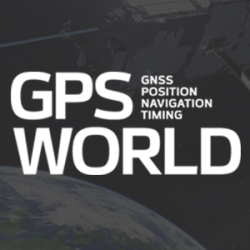
Korea institute awards UrsaNav an eLoran test bed contract
August 28, 2018
The Korea Research Institute of Ships and Oceans Engineering (KRISO) has awarded UrsaNav a contract to supply an […]
Read More

The FCC ordered that within six years, the elusive z-axis, or altitude, be added to requirements and meet accuracy standards in cases when there is no dispatchable location.

A sea-based test is demonstrating the potential of extending satnav augmentation coverage into north polar regions, offering a safety-of-life standard of navigation performance to users including shipping or aircraft in flight.

In the mass market, individuals around the world are creating vast quantities of location data and GPS traces using not only GPS, but also Russia’s GLONASS, Europe’s Galileo, China’s Compass, and India’s Regional Navigational Satellite System. The value of this data and the value chains that produce it will increase significantly with an increase in interoperability of these satnav systems. Currently, non-interoperability represents a serious obstacle to the growth of the GPS market.

System Design & Test Galileo Test Bed Over the past few years, GATE has become well known for being […]

A contract to design and to deliver an advanced multi-GNSS constellation signal simulator and interface environment testbed was […]

The radio spectrum is about to get even busier, as Europe’s Galileo satnav system starts services, at the […]
Follow Us